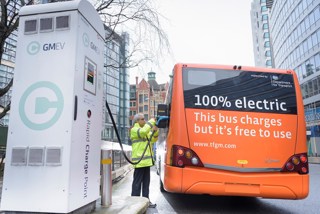The Low Carbon Vehicle Partnership (LowCVP) has outlined its three-year strategy, putting consumers at the centre of its focus.
Launched 15 years ago, the organisation was set up by Government to accelerate a sustainable shift to low carbon vehicles and fuels.
Its core role is providing independent evidence-based information and advice, on which future policies can be based and industry can invest.
LowCVP held a parliamentary reception in Westminster on Tuesday 20th March, to celebrate the organisation's 15th anniversary and launch its new strategy.
Andy Eastlake, LowCVP director, said: “The person in the street is the one we have got to convince right now. We have to convince them to buy their low emission vehicle, their low carbon fuel and to maybe think about behaviour change such as possibly taking the bus on some occasions, or walking or cycling.
“But, possibly also thinking about how they are ordering their Amazon goods and the delivery sector and how they are interacting with that.
“One of the first things we want to do is really engage with them in terms of the purchase process of vehicles.”
During the event, which was hosted by Lilian Greenwood MP, chair of the Transport Select Committee, LowCVP announced Natwest Lombard as its newest member.
Eastlake said financing has become one of the most critical voices in the way vehicles are chosen and believes that support from the finance sector will be crucial to influence consumer behaviour.
He also stated that more must be done to communicate the fuel economy advantages of low emission vehicles.
LowCVP outlined its intention to continue to embrace the air quality agenda and ensure that it complements the central mission: to deliver on the climate change targets in the context of road transport.
“The next 15 years take us to the end of carbon budget five in 2032. That is a critical time. We know we have managed to deliver on the first budget, but four and five are very much a challenge to all of us here and the wider sector.
“We want to try and deliver that decade of change in transport, between 2020 and 2030. We have some very clear objectives for 2020 and we only have two years to deliver those. The fundamental shift really has to happen over that time and that is what we are aiming to deliver,” added Eastlake.





















Login to comment
Comments
No comments have been made yet.